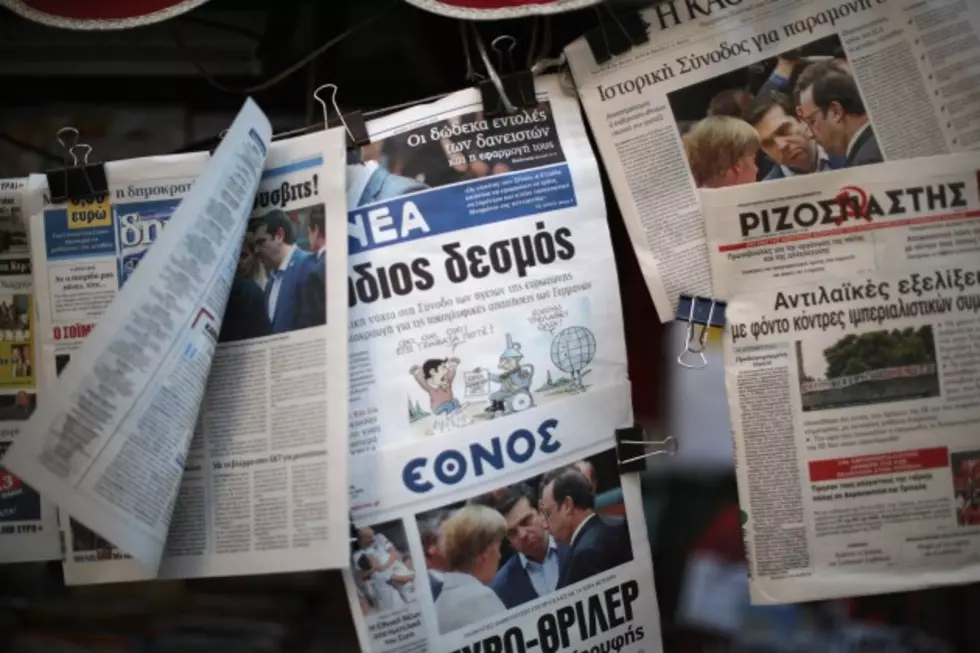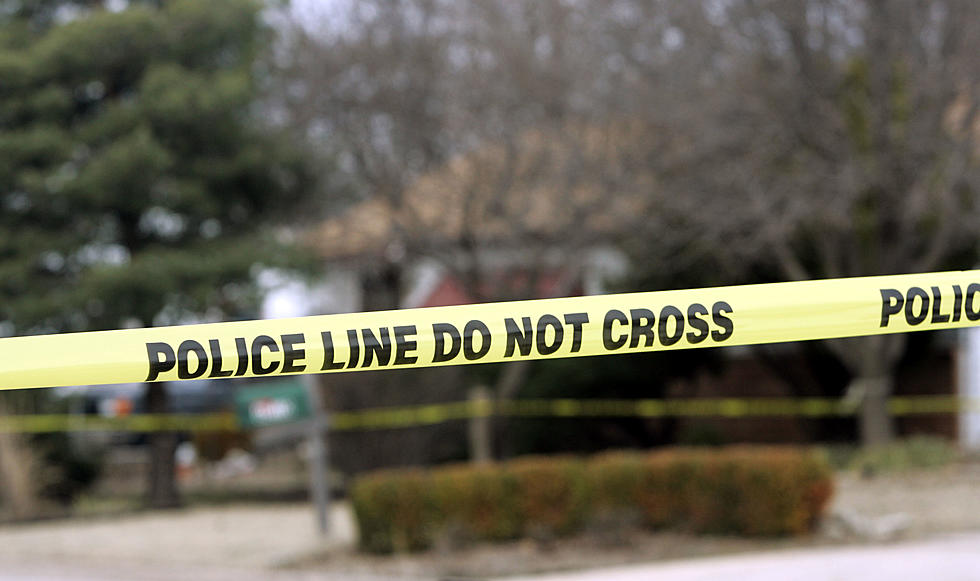
European Markets Rise on News of Greek Deal
BRUSSELS (AP) — The latest from Greece's financial crisis (all times local):
10:25 a.m. (AP) - Stock markets across Europe have spiked higher as investors breathe a sigh of relief that months of discussions have yielded a bailout agreement for Greece.
Germany's DAX was 1.2 percent higher while the CAC-40 in France rose by 1.6 percent. The Stoxx 50 index of top European shares was up 1.7 percent.
Craig Erlam, senior market analyst at OANDA, said markets responded positively to the news as it helps ease concerns that the country was heading for a "messy exit" from the eurozone.
Worries over so-called Grexit and what it could do to the fragile global economic recovery have weighed on stock markets this year.
___
10:20 a.m.
Greek Prime Minister Alexis Tsipras says his country fought "a difficult battle" for the past six months to win a financial aid agreement that will allow his country "to stand on its feet".
He says: "We found ourselves before difficult decisions, tough dilemmas. We took the responsibility of the decision in order to avert the implementation of the more extreme aims (of) the more extreme conservative circles in the European Union."
He says Greece managed to resist a request that Greece transfer public assets abroad as well as a "plan of financial suffocation and the collapse of the banking system," which he said had been "planned down to its last detail recently" and had already started to be implemented.
Tsipras stresses Greece won concessions on restructuring Greece's debt and assured medium-term financing.
___
10:05 a.m.
German Chancellor Angela Merkel says a preliminary bailout deal for Greece is predicated on the country asking for further help from the International Monetary Fund.
Greece has a bailout program with the IMF that will expire in the spring of next year.
Merkel says Greece's European creditors have agreed to a Greek bailout in which "Greece will ask, after the current IMF program expires in spring 2016, for further participation of the IMF."
The deal was greeted in markets as removing an immediate threat that Greece could collapse financially and leave the euro, with uncertain consequences for markets and the economy.
___
9:50 a.m.
German Chancellor Angela Merkel says the eurozone is open to the idea of giving Greece some debt relief but she has ruled out an outright cut in the country's debt level.
Speaking after an agreement to start bailout negotiations with Greece, Merkel said the eurozone "is prepared, if it becomes necessary, to take additional measures" to ease Greece's debt burden.
She noted that the eurozone could give Greece "a longer grace period." A direct cut though is not an option, she added.
Merkel insisted that no relief will come until after "the first successful assessment of the new Greek program."
Merkel said she recommended the start of negotiations with the cash-strapped country with "full conviction" but stressed that trust with Greece "needs to be rebuilt."
___
9:20 a.m.
European Union President Donald Tusk says the agreement with creditors struck Monday morning will allow Greece to "get back on track."
Officials including European Commission chief Jean-Claude Juncker say the deal means that Greece will not have to leave the euro currency, the so-called Grexit.
French President Francois Hollande says the Greek parliament should convene within hours to adopt new reforms, and has praised the fact that the deal should keep Greece in the euro.
For the eurozone to have lost Greece as a member would have been to lose "the heart of our civilization," Hollande said.
___
9:10 a.m.
European Union President Donald Tusk says the bailout deal for Greece could pave the way for the country to remain a member of the euro.
In a tweet Monday, Tusk said eurozone leaders agreed unanimously on a new bailout for Greece that includes "serious reforms" and "financial support."
Details of the agreement between Greece and its creditors have yet to emerge.
The Greek government made a request last week for a three-year, 53.5 billion-euro ($59.5 billion) financial rescue from Europe's bailout fund. During negotiations that stretched beyond a weekend deadline into Monday morning, Its creditors indicated that Greece will need tens of billions more than that to stay solvent.
Greece's economy is in freefall and its banks are facing collapse.
___
9 a.m.
Summit chair Donald Tusk says eurozone leaders have unanimously agreed on a bailout deal for Greece. In a tweet Monday, Tusk said the European bailout program for Greece includes "serious reforms" and "financial support."
___
8:35 a.m.
The European Union's top economy official says he's hopeful for a deal to keep Greece in the euro — and that the German and French leaders will be at the center of it.
Pierre Moscovici played down ideological differences among Greece's European creditors on Monday, telling France's RTL radio that the marathon overnight negotiations show there is a "shared willingness to ensure that Greece remains in the euro."
Earlier in the negotiations there had been indications of splits among the European countries, with German Chancellor Angela Merkel demanding tough conditions before releasing aid while French President Francois Hollande prioritized unity among the nations that use the euro.
Moscovici said Merkel and Hollande have "solid and direct" relations despite ideological differences and that "there is no solution for Europe" without agreement between the eurozone's two leading powers.
___
8 a.m.
Greece and its creditors may be working past their self-imposed deadline, but currency traders don't seem too alarmed about the uncertainty in the eurozone.
The euro was up 0.2 percent Monday at $1.1140.
Craig Erlam, senior market analyst at OANDA in London, said investors appear fairly optimistic that the two sides will soon strike a deal, at least in principle.
He says that with Greek banks on the verge of collapse, "the country really has run out of time."
Greece's banks have been closed for two weeks and cash-machine withdrawals have been limited to 60 euros a day as the European Central Bank rejected calls to increase the amount of emergency liquidity for Greek banks. Many believe they will run out of cash this week.
___
7:35 a.m.
Talks aimed at securing Greece's future in the euro have dragged into Monday with few signs that a meeting of the 19 leaders of the eurozone is coming to an end.
More than 15 hours after they started their discussions, Greek Prime Minister Alexis Tsipras appears to be holding out against two demands from his creditors: one related to the involvement of the International Monetary Fund in any bailout agreement, and the other a proposal that Greece set aside 50 billion euros ($56 billion) worth of state-owned assets in a fund for eventual privatization.
Summit chair Donald Tusk has presented a "compromise proposal," details of which remained sketchy Monday morning.
Any deal would see Greece accepting more austerity in exchange for a bailout to prevent its economy from collapsing.
(Story by: The Associated Press)
More From WIBX 950









